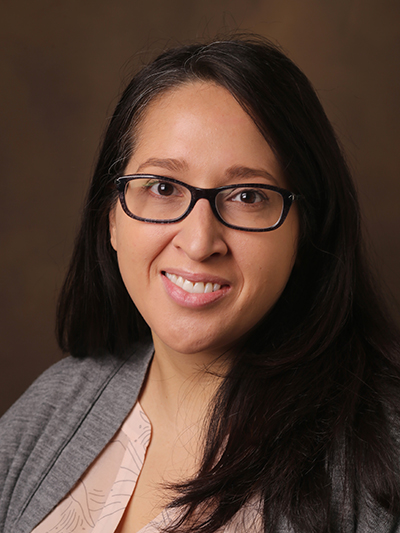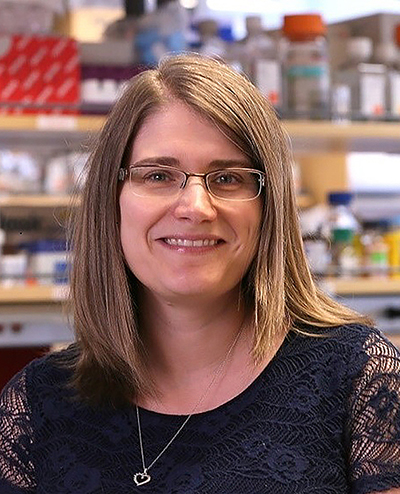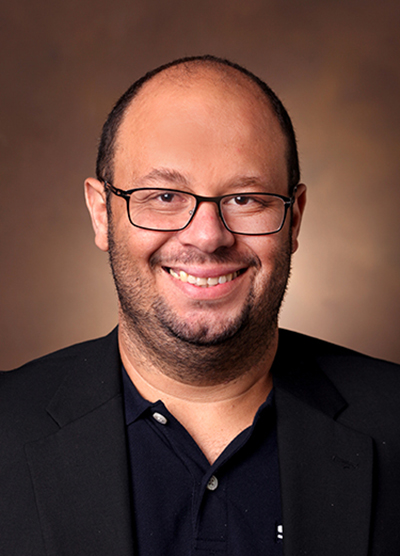By Wendy Bindeman
Vanderbilt School of Medicine Basic Sciences is excited to welcome the incoming leadership team for the Initiative for Maximizing Student Diversity.
IMSD recruits and supports biomedical trainees from backgrounds underrepresented in science during their graduate careers. The program was founded in 1998 by Roger Chalkley, formerly senior associate dean for biomedical research education and training and professor of molecular physiology and biophysics, who also served as director of IMSD until his retirement in the summer of 2021. He was joined as co-director by Linda Sealy,formerly associate dean for diversity, equity, and inclusion and a research professor of molecular physiology and biophysics at the time of her retirement in 2021.
Under their leadership, the IMSD became one of the most successful graduate diversity programs in the country, graduating nearly 200 Ph.D.’s from underrepresented backgrounds between 1995 and August 2020.
They will be succeeded by a three-person team: Digna R. Velez Edwards, Julie Rhoades (Sterling), and Henrique Serezani.

Digna R. Velez Edwards joined Vanderbilt in 2010. She is a professor of obstetrics and gynecology and biomedical informatics. Additionally, she serves as director of the Women’s Health Research Center, and assistant director of the local Building Interdisciplinary Research Careers in Women’s Health K12 program. Her research focuses on understanding and identifying genetic risk factors for complex diseases with a specific focus on diseases that disproportionately impact minorities and genetic factors related to women’s health and reproductive outcomes. As a co-director of IMSD, Velez Edwards will work to advance the diversity of our research community across all aspects of age, race, ethnic origin, socio-economic background, gender identity, sexual orientation, physical ability, political views, and religion.
 Julie Rhoades (Sterling), associate professor of medicine, has been at Vanderbilt since 2008. Her research focuses on molecular regulation of cancer-induced bone diseases with the goals of identifying more effective therapies to improve outcomes for patients with metastatic cancer. She has been actively involved with the Cancer Biology and Pharmacology graduate training programs and the IMSD, and also serves as a diversity liaison for the Department of Medicine, a member of the Diversity, Equity, and Inclusion Committee for the Cancer Biology program, and a co-chair of the DEI committee in the Cancer Biology Training Consortium. As IMSD co-director, Rhoades is committed to fostering diversity, equity, and inclusion in graduate education and medical research by building supportive communities and pipelines that improve opportunities for science education and careers for trainees from diverse backgrounds.
Julie Rhoades (Sterling), associate professor of medicine, has been at Vanderbilt since 2008. Her research focuses on molecular regulation of cancer-induced bone diseases with the goals of identifying more effective therapies to improve outcomes for patients with metastatic cancer. She has been actively involved with the Cancer Biology and Pharmacology graduate training programs and the IMSD, and also serves as a diversity liaison for the Department of Medicine, a member of the Diversity, Equity, and Inclusion Committee for the Cancer Biology program, and a co-chair of the DEI committee in the Cancer Biology Training Consortium. As IMSD co-director, Rhoades is committed to fostering diversity, equity, and inclusion in graduate education and medical research by building supportive communities and pipelines that improve opportunities for science education and careers for trainees from diverse backgrounds.
 Henrique Serezani is an associate professor in the Departments of Medicine, Pathology, Microbiology and Immunology, and Pharmacology and the associate director of the Vanderbilt Center for Immunobiology. His research program explores the inflammatory signals that influence host defense during preexisting conditions such as obesity and aging. He is originally from Brazil and joined Vanderbilt in 2016. As faculty, he has mentored over 20 graduate trainees from underrepresented backgrounds. He has been active in a number of initiatives focused on increasing diversity in biomedical research, including the Vanderbilt University Medical Center racial equity task force, the Vanderbilt Institute for Infection, Inflammation, and Immunity diversity, equity, and inclusion committee, and DEI committees of various scientific societies. As IMSD co-director, Serezani’s goal is to advocate, promote awareness, engagement, and community building to strengthen the voices of underrepresented groups so that every graduate student has the full opportunity to thrive at Vanderbilt.
Henrique Serezani is an associate professor in the Departments of Medicine, Pathology, Microbiology and Immunology, and Pharmacology and the associate director of the Vanderbilt Center for Immunobiology. His research program explores the inflammatory signals that influence host defense during preexisting conditions such as obesity and aging. He is originally from Brazil and joined Vanderbilt in 2016. As faculty, he has mentored over 20 graduate trainees from underrepresented backgrounds. He has been active in a number of initiatives focused on increasing diversity in biomedical research, including the Vanderbilt University Medical Center racial equity task force, the Vanderbilt Institute for Infection, Inflammation, and Immunity diversity, equity, and inclusion committee, and DEI committees of various scientific societies. As IMSD co-director, Serezani’s goal is to advocate, promote awareness, engagement, and community building to strengthen the voices of underrepresented groups so that every graduate student has the full opportunity to thrive at Vanderbilt.
The three incoming co-directors bring a wealth of experience with diversity and equity-focused initiatives. They are committed to maintaining a supportive and inclusive graduate training environment and enhancing the diversity of Vanderbilt’s research community.
“We are very proud of the Vanderbilt IMSD, which is one of the largest and most effective programs in the country,” said Larry Marnett, dean of Basic Sciences. “It has been a major driver of the diversification of our Ph.D. programs and developed a remarkable record for retention and graduation. I am looking forward to working closely with Digna, Julie, and Henrique as we transition to new leadership.”